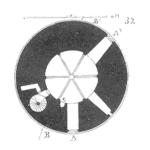
How is Reliability Engineering Changing?
podcast episode
The reliability engineering discipline, like all fields of endeavor, is changing. The inclusion of risk management, the shift to proactively avoiding field failures, and the increasing use of sensors and models all make the future fascinating.
[Read more…]














 Ask a question or send along a comment.
Please login to view and use the contact form.
Ask a question or send along a comment.
Please login to view and use the contact form.